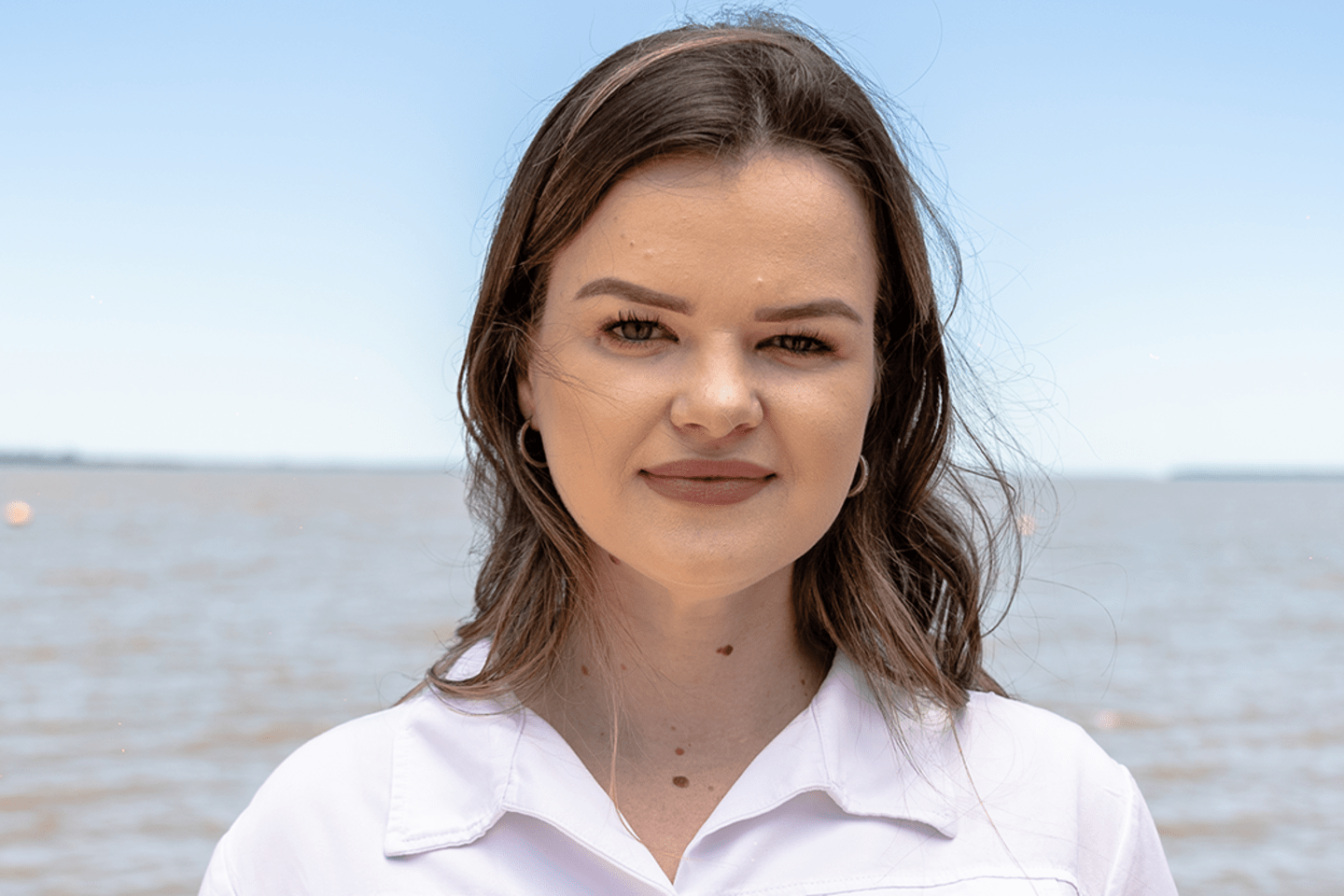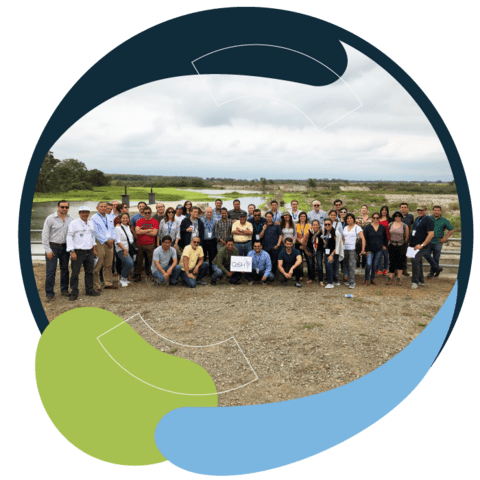
In 2016, Verónica Berestovoy was a senior studying environmental engineering at the National University of Itapúa, in the Paraguayan heartland, when a tweet stopped her in her tracks. Little did she know that this tweet would launch her on a fascinating knowledge journey.
Although Latin America and the Caribbean hold a third of the planet’s drinking water, the region’s water-related challenges grow every day, and its need for solutions is increasingly urgent.
Since over 40% of the problems can be traced to water resource management or governance, the Inter-American Development Bank decided to step up and take action.
And that’s the starting point of HydroBID, a simulation platform for efficiently managing water resources under different scenarios that take into consideration changes in climate, soil, and population, among others.
Water managers can use HydroBID’s results to make informed decisions, assess the quality and quantity of water, evaluate infrastructure needs, and design adaptation strategies.
The model gets stronger the more it is used. That’s why HydroBID, as a regional public good, builds partnerships with academia and the public and private sectors to expand and consolidate its scope.
As part of its efforts to get the word out about the tool, the IDB posted the tweet that ended up on Veronica Berestovoy's Twitter feed and sparked her curiosity about this innovative and free platform.
Verónica decided to contact the IDB, and the Bank invited her to take a course on how to use the tool. This exchange influenced her decision to incorporate HydroBID into her undergraduate thesis.
When she graduated, not only did she become one of the first people in academia to apply HydroBID, but she was also invited to become one of the first external teachers of the model.
But Verónica's knowledge journey didn't end there.
The course that Verónica took was developed through collaboration between several different areas of the Bank.
The tool and the course updates support the cycle of learning, unlearning, and relearning that BIDAcademy promotes. In this particular case, this cycle is fundamental, since we need to be constantly identifying gaps in knowledge about water and how it's managed.
MOVING TOWARD A PLATFORM WITHOUT BORDERS
The HydroBID Support Center is crucial for building communities and spreading the model far and wide.
“We are working hard to build relationships with universities in the region, since they're an important part of ensuring the sustainability of the actions that the HydroBID Support Center is rolling out in different countries.”
Mauro Nalesso, Lead Specialist, IDB Water and Sanitation Division
A digital badge will give this self-managed community and the contributions of its members a verifiable recognition, reflecting the collective work of the IDB and the region to produce open knowledge.
Argentina and Colombia are other examples of how the model has led to success across multiple countries in the region.
In Colombia, the Cormagdalena company is using HydroBID to optimize the Magdalena River’s navigability and water resources. Meanwhile, the Argentine province of Santa Fe is updating its water policy.
“HydroBID's valuable contribution to our city has two major planks. One is related to the model's results during water alert or emergency events. This data allows us to make more efficient decisions on water infrastructure interventions. The other is that the tool allows us to incorporate greener mid-term solutions into the design that optimize infrastructure that’s already in place, making for less costly projects.”
Since her first interaction with the tweet, Veronica’s journey has been remarkable. Her enterprising spirit won her a scholarship from the Spanish Carolina Foundation to pursue a master’s degree in hydrology and water resource management at the University of Alcalá in Spain.
Today, Verónica leads the Water Observatory at the National University of Itapúa and is an active member of the HydroBID community.

FROM ONE TO MANY
HydroBID is a clear example of how knowledge can improve lives, individually and regionally. The model supports 19 IDB development projects worth $2 billion, and it has been applied in 21 of the Bank’s 26 member countries in the region.
We know that one out of every three people in the world still lacks access to drinking water. This means that access to water not only improves lives, it saves them.
BIDAcademy will continue to support Veronica’s knowledge journey and others like hers. We know they quietly drive a profound transformation that improves lives, and also prove that when we know, we can.